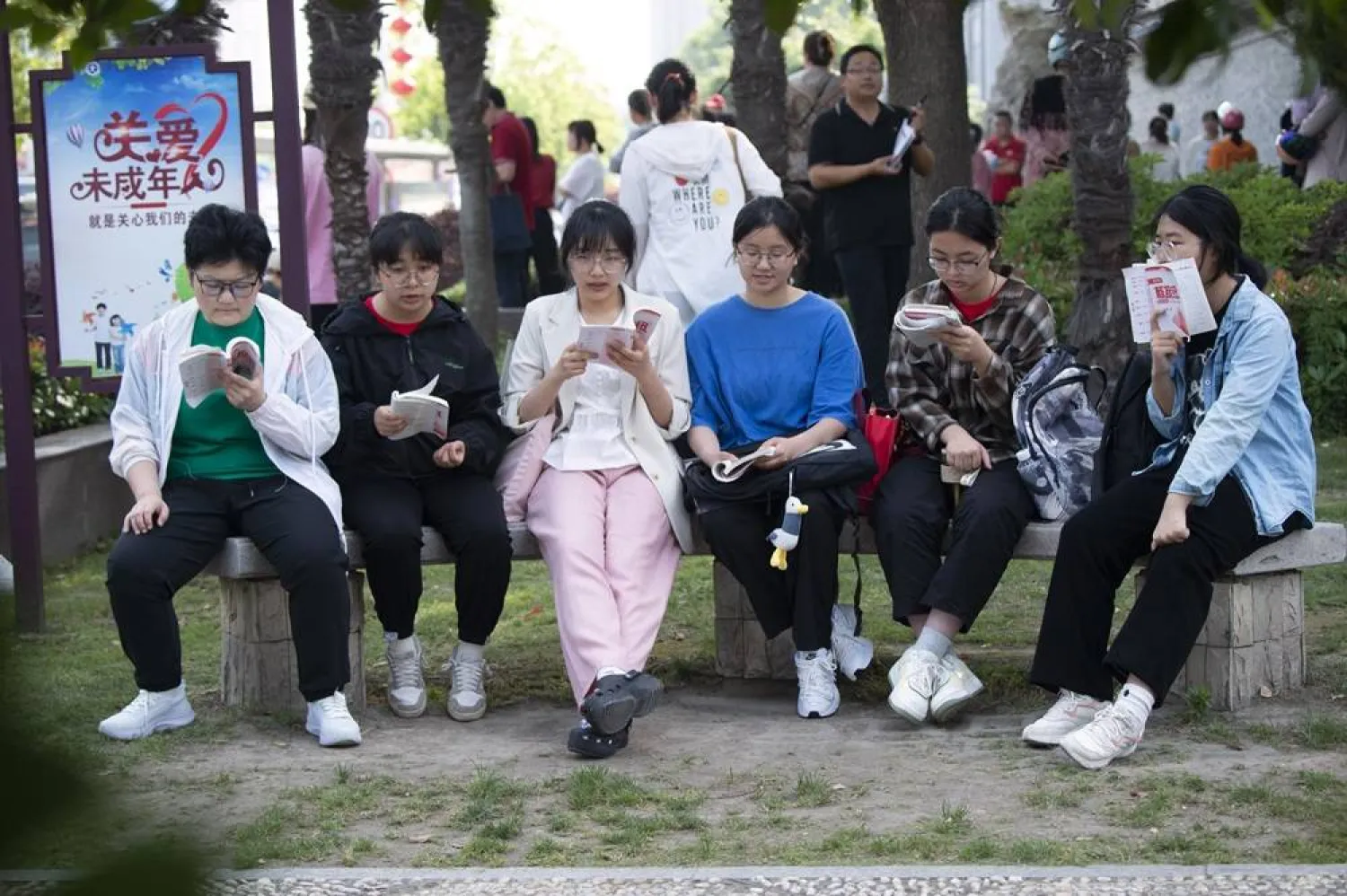A 17-year-old vocational school student from rural China became a celebrity on social media after reaching the final round of a math competition, beating many others from top universities and raising questions about the education system.
Jiang Ping, who is studying fashion design, finished 12th in the Alibaba Global Math Competition, one of 802 who made it to the final round — an eight-hour test that takes place Saturday.
A video that included an interview with Jiang got more than 800,000 likes and 90,000 comments after it was posted on social media by Damo Academy, the organizer of the contest. Most expressed their amazement, while some questioned if it was real.
Jiang says in the video interview that she didn’t think she deserved to join the competition, even though she enjoys working on advanced math as it "brings out my desire to explore."
Congratulations poured in. People visited her parents’ home in a village in Jiangsu province on China’s east coast with money to show support. Her pictures were shown on the walls of shopping malls in her hometown, Lianshui. Zhejiang University and Jiangsu University praised her on their Weibo accounts.
While it was unclear how Jiang ended up in vocational school, her story still reminded some in China of the inequality between rural and urban areas and how that can make it harder for even talented students to climb the economic ladder.
"While Jiang Ping is openly celebrated, many Chinese feel deep down inside that her story highlights the hopelessness of Chinese education," said Jiang Xueqin, a China-based education researcher.
"The odds are fundamentally stacked against ordinary Chinese, without power, wealth, or ‘guanxi,’" the Chinese term for connections.
Inequality in education appears to have worsened in recent years. Spending on education in rural areas was 17% less than in cities in 2019 for the nine years of compulsory education in China, which does not include high school. It was only 2% lower in 2013, based on calculations from data in a Peking University report on the urban-rural gap in per capita expenditure.
Ministry of Education data show that 70% of students in China's vocational schools are from rural areas. The high percentage suggests that the education system works like a caste system, Jiang, the researcher said.
Jiang, the math whiz, is the only vocational school student among all the finalists. The others, who are mostly Chinese, mainly come from top-tier universities such as Cambridge, MIT and Caltech, as well as China’s top two, Tsinghua and Peking University. Winners will be awarded $2,000 to $30,000 in prize money.
The competition was started six years ago by Alibaba, a Chinese e-commerce giant. Jack Ma, then-executive chair of Alibaba Group, said the goal was to find students who enjoy math and encourage and support them.
Jiang did well enough on the entrance exam to go to high school, the Communist Party secretary of her vocational school told state broadcaster CCTV.
The secretary said she applied to the vocational school instead of a high school because her older sister and good friends were students there. Other Chinese media said it was because she came from a poor family, and vocational school gave her a scholarship.
Attempts to reach Jiang were unsuccessful. A call to her school was unanswered and Damo Academy, an affiliate of Alibaba, didn't respond to an email.
Jiang says in the video interview that her plan is to get into a good university. It's not impossible, though vocational school students only have access to certain institutions.









